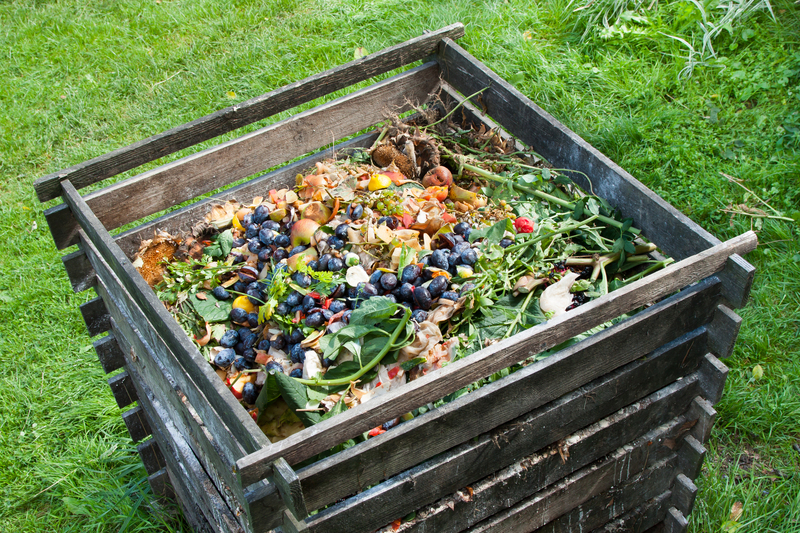London's Sustainable Business Waste Solutions
Posted on 25/12/2024
In recent years, the emphasis on sustainability has significantly influenced how businesses manage waste. London, a global metropolitan hub, is at the forefront of these efforts. The city has developed numerous innovative and efficient sustainable waste solutions tailored for businesses. By adopting these practices, industries can not only reduce their environmental footprint but also benefit economically. This article delves into the various sustainable waste solutions available for businesses in London.
Recycling Initiatives
One of the most prominent sustainable waste solutions for businesses in London is recycling. The city boasts a robust recycling infrastructure that supports multiple materials, including paper, plastic, glass, and metals. Businesses are encouraged to set up recycling stations within their premises to ensure proper waste separation and disposal.
London's local government offers comprehensive guidelines and resources for businesses to initiate their recycling programs. Additionally, firms can collaborate with professional recycling companies that provide collection, sorting, and recycling services, making the process seamless and efficient.

Composting Programs
Organic waste, such as food scraps and garden waste, comprises a significant portion of business waste, particularly in the hospitality and food service sectors. London promotes composting as a viable solution for managing this type of waste.
Businesses can either compost their organic waste onsite or collaborate with external composting services. These services collect organic waste and convert it into nutrient-rich compost, which can be used for landscaping and gardening purposes, thus closing the waste loop.
Waste Minimization Strategies
Preventing waste before it is created is the most effective sustainable solution. London encourages businesses to adopt waste minimization strategies, including:
- Implementing paperless operations by utilizing digital documents and communications.
- Opting for reusable items instead of disposable ones, such as stainless steel cutlery and washable dishware.
- Purchasing products in bulk to reduce packaging waste.
- Conducting regular waste audits to identify and eliminate sources of excess waste.
Energy from Waste (EfW)
The concept of Energy from Waste (EfW) has gained traction in London. This approach involves converting non-recyclable waste materials into usable heat, electricity, or fuel through various processes such as incineration, gasification, or anaerobic digestion.
EfW helps in reducing landfill use and provides a renewable source of energy, allowing businesses to contribute to the city's overall energy requirements while successfully managing their waste.
Pros and Cons of Sustainable Business Waste Solutions
Adopting sustainable waste solutions comes with its own set of pros and cons:
Pros
- Environmental Impact: Significantly reduces the amount of waste sent to landfills and lowers greenhouse gas emissions.
- Cost Savings: Efficient waste management can lead to lower disposal costs and potential revenue from recycled materials.
- Brand Image: Demonstrating commitment to sustainability can enhance a company's reputation and appeal to eco-conscious consumers and partners.
- Regulatory Compliance: Helps businesses comply with local environmental regulations and avoid potential fines.
Cons
- Initial Costs: Setting up sustainable waste management systems can require initial investments in infrastructure and training.
- Complexity: Implementing comprehensive sustainable strategies may require significant changes to existing business processes and routines.
- Continuous Monitoring: Requires ongoing efforts to monitor and analyze waste generation and disposal to ensure the effectiveness of the solutions.
Tips for Implementing Sustainable Waste Solutions
To successfully implement sustainable waste solutions, consider the following tips:
- Conduct a Waste Audit: Begin with a thorough assessment of the types and quantities of waste generated by your business.
- Set Clear Goals: Define measurable targets for waste reduction, recycling, and composting initiatives.
- Employee Training: Educate employees on the importance of waste management and proper disposal practices.
- Collaborate with Experts: Partner with waste management professionals who can provide expertise and resources to streamline the process.
- Regular Reviews: Periodically review your waste management strategies to identify areas for improvement and adapt to changing needs.

Key Takeaways
- London offers a range of sustainable business waste solutions, including recycling, composting, waste minimization, and energy from waste.
- Implementing these solutions can lead to significant environmental, economic, and reputational benefits.
- Challenges such as initial costs and ongoing monitoring must be considered and managed effectively.
- Employing practical tips and conducting regular reviews will ensure the success of sustainable waste management efforts.
Conclusion
London's commitment to sustainability is evident in its comprehensive range of business waste solutions. By embracing recycling, composting, waste minimization, and energy from waste strategies, businesses can substantially reduce their environmental impact. While there are challenges associated with implementing these practices, the long-term benefits far outweigh the drawbacks. Through continuous improvement and adherence to best practices, businesses in London can contribute to a greener future while reaping economic rewards.
In conclusion, adopting sustainable waste solutions is not just a regulatory requirement but also a smart business move that aligns with global sustainability goals.
Latest Posts
Essential Tips for Managing Organic Waste






